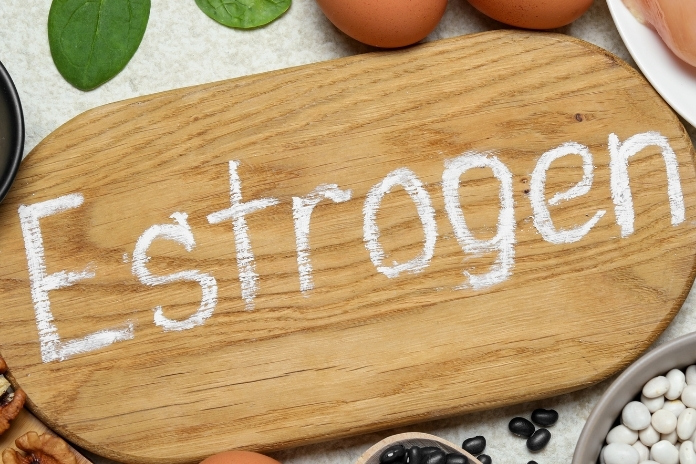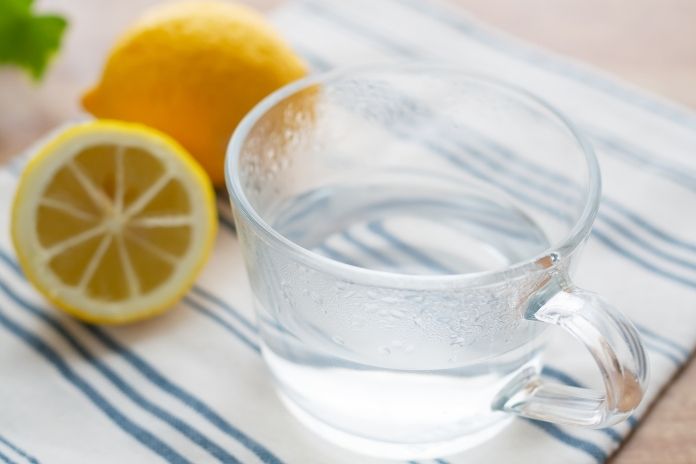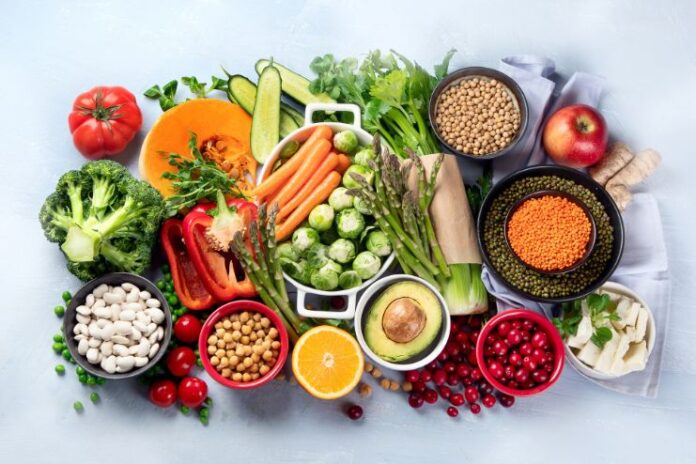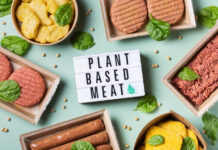Vegetarian and vegan diets have become very popular in recent years due to increased knowledge of their ethical implications, environmental effects, and health benefits. Many people are switching to plant-based diets because they want to live more sustainably and support animal welfare. Nevertheless, in spite of their growing popularity, there are still a number of myths about these diets.
Dispelling these misunderstandings is crucial to empowering people to make knowledgeable food decisions. Many of these claims are incorrect, whether related to dietary imbalances, protein deficiencies, or the idea that these diets are overly restrictive.
This article aims to dispel widespread misconceptions regarding vegetarian and vegan diets, offering clarification and promoting a more informed and well-rounded approach to plant-based living.

Read More: 5 Common Mistakes People Make When Starting a Vegan Diet
Understanding Vegan and Vegetarian Diets

One abstains from eating animal products and animal protein when following a vegan diet. Any meat, seafood, dairy products, milk, eggs, cheese, and honey fall under this category. For example, if you care about animal rights and welfare, you might avoid makeup testing on animals. Or, for health reasons, they could opt for a raw vegan diet, which consists primarily of uncooked and unprocessed foods.
Like a vegan diet, a vegetarian diet excludes meat and animal protein. Nonetheless, it may include dairy, milk, eggs, cheese, and honey, which is how it differs from a vegan diet.
Diets That Are Vegetarian:
There are several varieties of vegetarian diets, even though the term “vegetarian” typically refers to “plant-based.” A person’s choice of a vegetarian diet is influenced by various factors, such as economic, ethical, religious, environmental, or health-related considerations.
- A lacto-ovo-vegetarian consumes dairy products (such as milk), eggs, and plant-based cuisine but abstains from meat and shellfish.
- People who eat dairy products and plant-based foods instead of meat, fish, or eggs are lacto-vegetarians.
- Ovo-vegetarians include eggs and plant-based foods but abstain from meat, shellfish, and dairy.
Vegans only consume plant-based cuisine and abstain from all animal products:
Although they are not entirely vegetarian, the following two diets emphasize cutting back on or limiting the use of animal products:
Pescatarians consume fish, dairy products, eggs, and plant-based foods instead of meat.
Flexitarians, commonly known as “semi-vegetarians,” are primarily plant-based eaters who occasionally consume modest amounts of meat and seafood.
Read More: What Is Vegan Diet Deficiency? Everything One Should Know About It!
Common Myths and Misconceptions
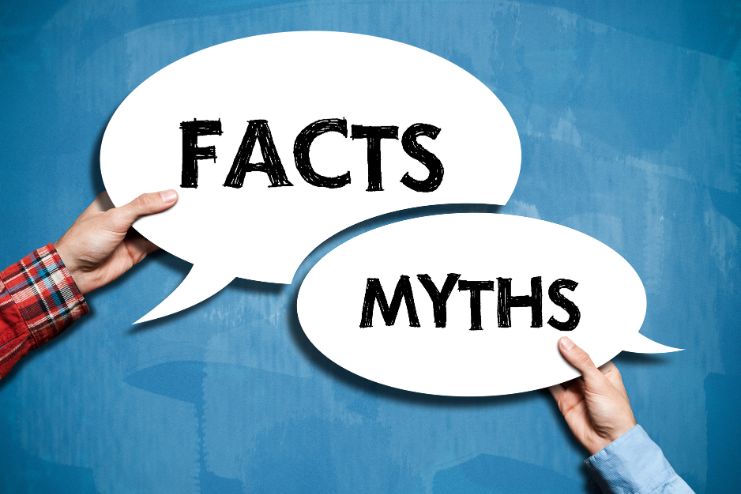
Section A: Protein Deficiency Myths
Building, maintaining, and repairing tissues all depend on protein. It also significantly affects red blood cells, hormones, enzymes, and the immunological system. Chains of various amino acids in multiple sequences make up proteins.
When prepared properly, foods like asparagus, tofu, and mushrooms may be delicious. One of the most common myths about a plant-based diet is that it does not provide enough protein.
Whole-food, plant-based protein sources include legumes, beans, certain nuts, and seeds. Plants are naturally protein-rich because of their structural cells, hormones, and enzymes.
The largest animals on the planet, like elephants, giraffes, hippopotamuses, gorillas, cows, and horses, get their protein needs from plants. We can obtain enough protein from plants if these giant animals with powerful muscles can.
Section B: Nutrient Deficiency Myths
Critics often point out that vegan diets lack vitamin B12 since plant-based foods don’t naturally contain it. However, vegetarians and vegans can still maintain healthy B12 levels and avoid deficiencies. B12 pills and fortified meals are readily accessible and very efficient.
Experts recommend vitamin B12 supplements for those who consume little or no meat. If sun exposure is less than five to fifteen minutes, people with dark complexions or those living in colder climes must use supplements or fortified meals (breakfast cereals, bread, and plant-based milk).
Citrus fruits are a great source of vitamin C, and leafy green vegetables are a great source of calcium, iron, and zinc. Since certain vegetables even contain protein, eating only plants will ensure that people acquire the majority, if not all, of the vitamins and amino acids they need.
Dairy products are not the only source of calcium. Indeed, fortified plant milk, tofu prepared with calcium sulfate, almonds, sesame seeds, and a variety of leafy green vegetables (such as bok choy, collard greens, and kale) are all excellent sources of calcium.
Omega-3 fatty acids are essential for heart health, inflammatory management, and brain function. Fish commonly contain them, but you can also obtain them on a plant-based diet from flaxseeds, chia seeds, walnuts, hemp seeds, and algae supplements.
Read More: Easy Guide To Start Vegan Diet For A Week- Make It Simpler
Section C: Health and Sustainability Myths
Some people think vegetarian or vegan diets are inherently unhealthy or unrefined. A Balanced plant-based diet has several health advantages, such as a reduced risk of heart disease, type 2 diabetes, and high blood pressure.
Veganism has a long history and has been practiced for centuries in many civilizations for ethical, environmental, and health reasons. Growing concerns about environmental sustainability, animal welfare, and individual health are the main causes of the current rise in veganism.
It is a common misconception that a plant-based diet is more costly than eating meat. However, this isn’t always the case. Whole-food nutrition—minimally processed foods like fruits and vegetables—is highly valued in a plant-based diet. These foods are very affordable. However, moving from the vegetable section to the frozen and snack sections, eating a plant-based diet can get expensive.
Plant-based diets may be incredibly fulfilling due to their diverse textures and aromas. Foods that promote satiety and satisfaction, such as dense whole grains, creamy nut butter, and hearty legumes, guarantee that meals are satisfying and complete.
Read More: Vegan Diet Plan For Vegans
Tips for a Balanced Vegan/Vegetarian Diet

Working with a doctor or certified nutritionist to create a nutrition plan is a smart option if you’re considering becoming vegan or vegetarian. If you already have diabetes, heart disease, obesity, or a gastrointestinal ailment, it’s even more crucial. You can also get advice from the provider about vitamins and supplements.
Seek Assistance: Connect online or in person with other vegetarians or vegans to share recipes and any advice on healthy eating. Maintain regular contact with your nutritionist.
Emphasis on Whole Foods: Nowadays, you can find a processed, plant-based version of almost any food. Finding a fake meat or animal product that tastes like the genuine thing is now simpler than ever, from shrimp scampi to fast restaurant burger knockoffs. However, this does not always imply that processed vegetarian or vegan cuisine is healthier. When entire foods, such as fruits, vegetables, and nuts, are the mainstay of your diet, you’ll typically obtain more nutrients.
Beware of Added Fats and Sugars: Additionally, you should be aware of the amount of added sugar and saturated fat in premade vegan and vegetarian products, such as bars, cookies, and frozen dishes. Excess saturated fat raises the risk of heart disease and causes weight gain. Diabetes, heart disease, and obesity are among the health issues that can result from added sugar.
The American Heart Association (AHA) recommends that women who consume more than six teaspoons (25 grams) of sugar per day, while men should restrict their intake to 9 teaspoons (36 grams).
Select Foods High in Protein: Protein is a necessary ingredient that keeps bones, muscles, skin, and organs in good condition. Multiplying weight in pounds by 0.36 yields an approximation of the recommended dietary requirement for protein, which is around 0.8 g per kilogram of body weight. For instance, a 140-pound person should have about 50 grams of protein daily.
Avoid Refined Carbohydrates: Some vegans and vegetarians might replace the meat or animal products with refined grains like white rice or bread. However, eating too much of refined grains is linked to an increased risk of heart disease or even death.
Read More: 7 Vegan Protein Sources That Will Fuel Your Day
Conclusion
Making an educated and empowered nutritional choice requires debunking misunderstandings about the vegan and vegetarian diet. Misinformation can prevent people from discovering the many advantages of plant-based living by causing unwarranted anxieties or dietary errors.
Dispelling frequent misunderstandings, such as those about protein and calorie deficiencies or uncertainties about their viability and health advantages, makes for more balanced and evidence-based knowledge.
With careful planning, vegan and vegetarian diets can benefit people at every stage of life and positively affect the environment and human health. Accurate information is essential, regardless of whether you’re considering making a complete switch or just trying to cut back on animal products.
Instead of being cautious, approach these diets with curiosity. Learn from reliable sources, get advice from dietitians if necessary, and remember that leading a plant-based diet may be satisfying and nourishing.
References
- https://www.nhsinform.scot/healthy-living/food-and-nutrition/special-diets/vegetarian-and-vegan-diets/
- https://www.betterhealth.vic.gov.au/health/healthyliving/vegetarian-and-vegan-eating
- https://shimacrobiotics.org/vegan-vegetarian-and-macrobiotic/
- https://newsnetwork.mayoclinic.org/discussion/mayo-clinic-minute-busting-plant-based-diet-myths/
- https://www.downtoearth.org/articles/health-tips/1859/going-meatless-protein-myth
- https://www.forksoverknives.com/wellness/vegan-protein-guide-athletes/
- https://viva.org.uk/materials/protein-myth-fact-sheet/
- https://abbots.com/our-journal/plant-based-diet-myths
- https://www.downstate.edu/about/community-impact/plant-based/_documents/myths-facts.pdf
- https://bitesizevegan.org/how-to-get-your-omega-3-on-a-vegan-diet-dr-michael-greger-of-nutritionfacts-org/
- https://www.medicalnewstoday.com/articles/medical-myths-vegetarian-and-vegan-diets
- https://www.internationalvegan.org/nutrition/
- https://www.hopkinsmedicine.org/health/wellness-and-prevention/how-to-maintain-a-balanced-diet-as-a-vegetarian-or-vegan
- https://www.mayoclinic.org/healthy-lifestyle/nutrition-and-healthy-eating/in-depth/vegetarian-diet/art-20046446
- https://www.factor75.com/eat/staying-healthy/maintain-a-balanced-vegan-vegetarian-diet
In this Article





